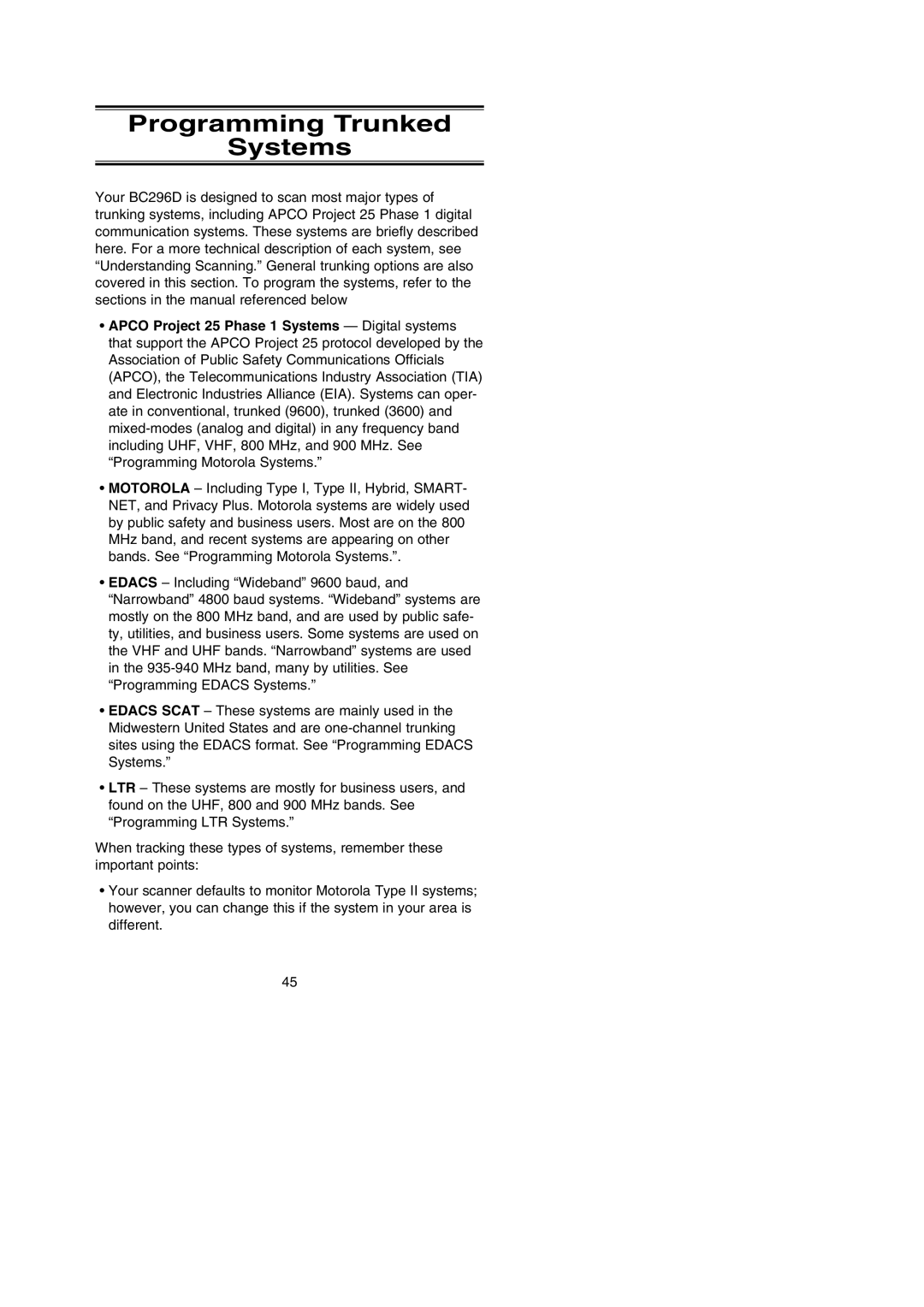
Programming Trunked
Systems
Your BC296D is designed to scan most major types of trunking systems, including APCO Project 25 Phase 1 digital communication systems. These systems are briefly described here. For a more technical description of each system, see “Understanding Scanning.” General trunking options are also covered in this section. To program the systems, refer to the sections in the manual referenced below
•APCO Project 25 Phase 1 Systems — Digital systems that support the APCO Project 25 protocol developed by the Association of Public Safety Communications Officials (APCO), the Telecommunications Industry Association (TIA) and Electronic Industries Alliance (EIA). Systems can oper- ate in conventional, trunked (9600), trunked (3600) and
•MOTOROLA – Including Type I, Type II, Hybrid, SMART- NET, and Privacy Plus. Motorola systems are widely used by public safety and business users. Most are on the 800 MHz band, and recent systems are appearing on other bands. See “Programming Motorola Systems.”.
•EDACS – Including “Wideband” 9600 baud, and “Narrowband” 4800 baud systems. “Wideband” systems are mostly on the 800 MHz band, and are used by public safe- ty, utilities, and business users. Some systems are used on the VHF and UHF bands. “Narrowband” systems are used in the
•EDACS SCAT – These systems are mainly used in the Midwestern United States and are
•LTR – These systems are mostly for business users, and found on the UHF, 800 and 900 MHz bands. See “Programming LTR Systems.”
When tracking these types of systems, remember these important points:
•Your scanner defaults to monitor Motorola Type II systems; however, you can change this if the system in your area is different.
45
